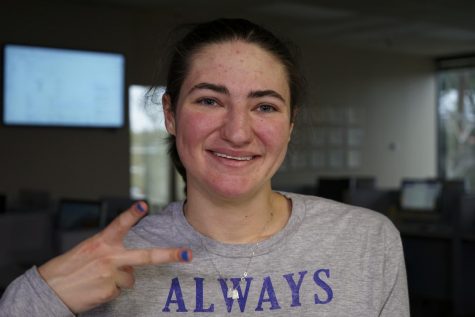Students tackle mental health during coronavirus outbreak
September 20, 2020
As coronavirus cases continue to rise in the U.S., so do feelings of despair and uncertainty amongst Americans.
According to the Pew Research Center, one-third of Americans have experience high levels of psychological distress during the COVID-19 outbreak. Common stressors were financial problems, exposure to the virus and reading the news.
“We don’t know when a vaccine is coming out. We don’t know if the vaccine will be effective. We don’t know when we’re gonna be able hang out with friends and family in person and in large groups,” assistant psychology professor Madison Silverstein said.
At first, the coronavirus seemed like a distant threat to Louisiana despite the number of cases popping up in the U.S. and parts of the world. But when cases in Louisiana popped up in March, residents started seeing immediate changes to their lives, including unemployment, isolation and health concerns.
Director of neuroscience and assistant psychology professor Dr. Yurgil described the outbreak as an “unfamiliar disaster.”
“Those of us who are used to living on the Gulf Coast, we’re used to hurricanes. That’s something that we know kind of how to prepare for, and there’s warning about it. With the coronavirus, it was something that was completely different,” Yurgil said. “It wasn’t anything that we knew how to prepare for.”
Depression is also a major concern. According to the Center for Disease Control and Prevention, 30.9% of adults in the U.S. reported symptoms of anxiety disorder or depressive disorder during the outbreak. It also stated that 10.7% of adults reported feeling suicidal, 25.5% of them being aged 18-24 years.
Before the outbreak, people were able to meet up and engage in their hobbies. With social distancing measures in place, it can be harder to do these things.
“With less positive reinforcement and less enjoyable activities that are available, that can also lead to depression,” Silverstein said.
Every student had a different experience with the outbreak, While some students struggled with quarantine and social distancing, others thrived.
Graduate business student Van Le spent time with his loved ones and spent his alone time at home prior to the outbreak. When Gov. John Bel Edwards issued a stay-at-home mandate, he got used to being in his own world that he didn’t reach out to his friends and family as much.
“Over time, anxiety began to build around this lack of connection, and I was really worried that I hadn’t been a good friend, son or partner,” Le said.
Le coped with his anxiety through meditation, yoga, self-help apps and books, and breathing exercises. He also drank coffee and tea to calm himself down.
“Those are two super therapeutic drinks for me,” Le said.
Despite all of the sudden changes that came as a result of the coronavirus, music performance freshman Caura Holiday said that the outbreak gave her a chance to learn more about herself, expand her knowledge and strengthen her faith.
“I just try to take it one day at a time and do what I can do without overwhelming myself,” Holiday said.
However, she said that the outbreak was both an advantage and a disadvantage.
“I am enjoying getting to know myself more, but I do miss having major fun with others,” Holiday said.
She coped with her mental health through prayer, work, exercise, music, walking and listening to sermons. She also allowed herself to process negative feelings.
“It is OK to feel sad. It is OK to cry. Stay true to yourself. Allow yourself to feel those emotions! Also, never give up! You got this!” Holiday said.
Le said that students should come up with a self-care routine that’ll help them deal with their lives. He also encouraged them to reach out for help through counseling or therapy.
“One session can lead to a lot of insight and growth, but you’ll have to be a little vulnerable so that you’ll get the best guidance,” Le said.
Yurgil warned that even when the coronavirus is under control, life will be different. This may include changes in routine and familiarity.
Researchers say that resilience is key to moving forward from disasters. According to Yurgil, trauma experts say that it’s not about returning to normal but rather contextualizing these experiences and using them to move forward.
“It’s acknowledging that things are gonna change and being okay with that change,” Yurgil said.







